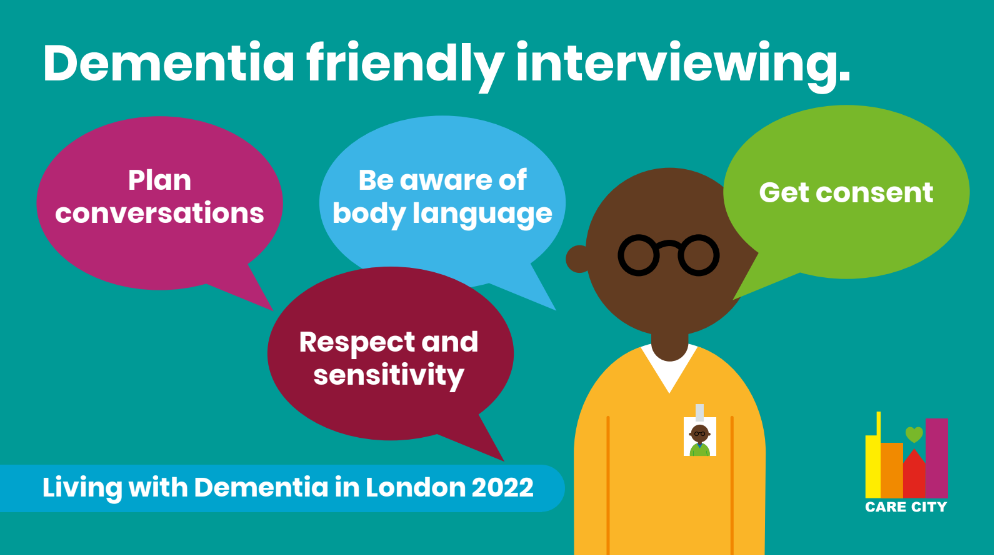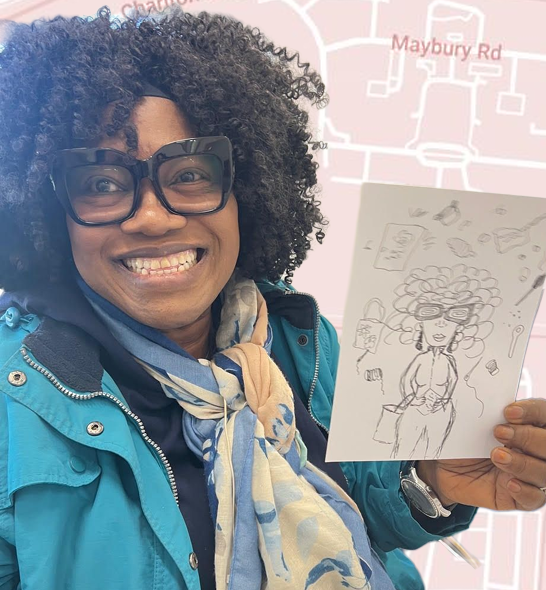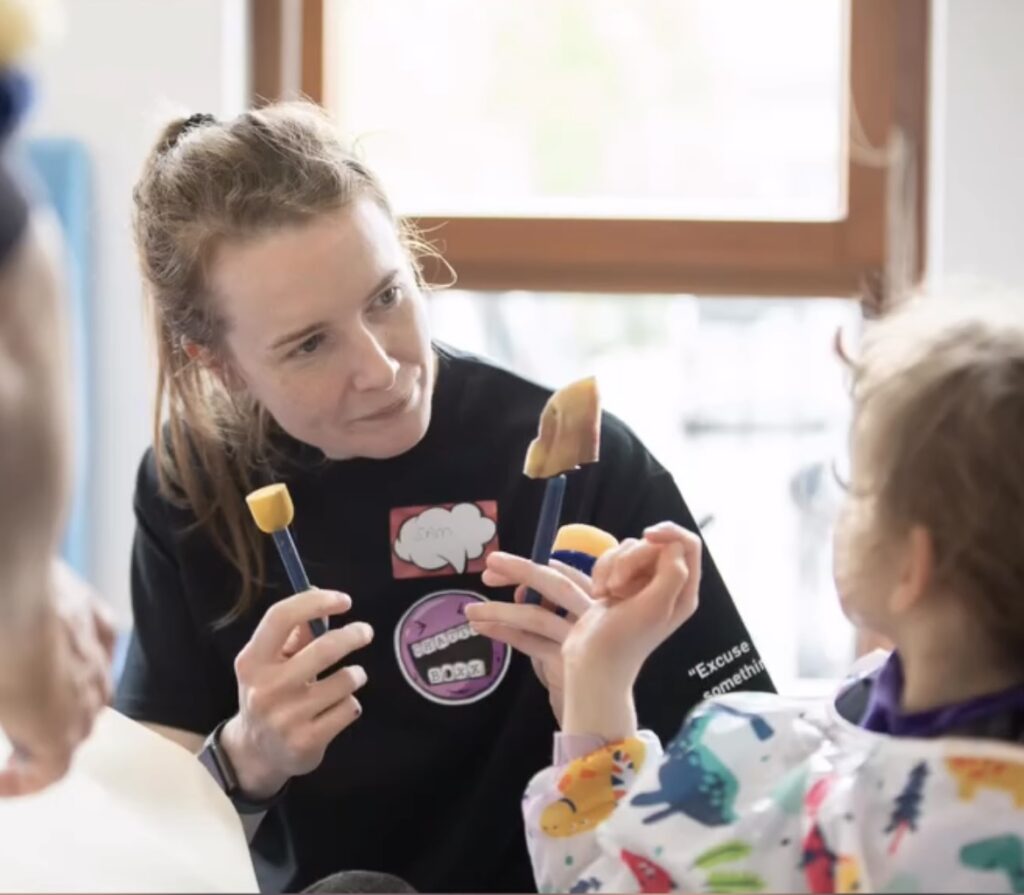Dementia-Friendly Interviewing

Read Ben’s blog about his life as a former Independent Mental Capacity Advocate & dementia-friendly interviewing.
We recently completed the first phase of a project looking at dementia services across London. After several years of having constant zoom meetings, it was nice to go and meet people face to face. It brought back many memories of my life as an Independent Mental Capacity Advocate (IMCA).
The role of an IMCA was brought in 2005 when The Mental Capacity Act came into use. I would help individuals who lack the mental capacity to decide about their care and welfare. Being independent of the local authority and the healthcare providers involved in the person’s care helped me to be objective. Often we could come up with creative solutions to help people.
As an IMCA, the majority of people I supported had dementia. I worked for an organisation called Voiceability, and we had a lot of training and coaching for the role. Now for this more recent dementia project, I want to point out that I’m not suggesting everyone with dementia lacks mental capacity. One of the main principles of the Act is that you have to start assuming the person has mental capacity. But I found the training and coaching very useful.
My personal approach for interviewing a person with dementia was to meet face to face. There are a lot of subtle body movements that can help inform you of how a person feels that are hard to notice over Zoom. As an IMCA, I would normally be able to see a person’s medical records and read about any areas of concern or topics that might trigger a bad experience with someone. No such joy for this project. I had to be very careful about my approach.
Regardless of the project’s purpose, if it’s to do important research or make a decision about accommodation, the highest priority is to end the conversation with the person living with dementia feeling calm and at ease. So you have to plan how you will start and end the conversation. Review the points you want to discuss beforehand so they are part of a normal conversation. I would usually ask for a third party to introduce me.
It’s important to think about your body language as well. I’ve found a sincere smile and open body language can help a person relax. If you are carrying a lot, it can be like distracting visual noise that prevents a natural conversation. Try to have nothing in your hands and ensure your hands can be clearly seen and are open, with no closed fists or arms across your chest.
You never know how a person will react to you as a new person in their life. You don’t know how they feel about dementia. Some people get very upset if someone were to say they have dementia. So I initially try to keep the topic of conversation light and plan what to say if someone gets upset with my presence. Often, when others interview, they go straight into a spiel explaining who they are and why they are there. Maybe explaining the objectives of the project. For some, this is fine, but for others, it can be a complete overload of information. So I talk about the weather, the setting, if they would like a drink, till I get some signs they are relaxed in my presence.
Once I’m happy that they are happy I will start talking about my project. I will ensure the conversation is about my work, making no direct connection to them. I might ask if they know anyone with dementia to see how they feel talking about the subject. If they are unhappy, you can easily withdraw and thank them for the conversation. If a person is happy to talk, then it is important to get consent and at the same time judge capacity to consent.
A capacity assessment does not have to be a review with a psychologist. The Mental Capacity Act guidance explains how we instinctively make capacity assessments all the time. This is just formalising the process. Consent is also time-based, so throughout the conversation, I try to make sure they are still happy to share their thoughts, and they know why I am there.
Then the real trick comes. Doing all this, like on a feedback loop in your head, and trying to have a relaxed, normal conversation. Experience is the only way to solve it. Second, give it time. Don’t rush. Don’t keep reframing your question or comment. Just let people speak, and you will be amazed at what you find. If you want to learn more about dementia-friendly interviewing, I recommend the Alzheimer’s Society page.
I enjoyed speaking to people with dementia. Each conversation was an insight into a person’s perspective on the world. You get to see what is important to another human and their hopes and dreams. I think we should have more conversations just to learn about each other. We should have interview television programmes without celebrities, just to learn about people’s lives. If you are looking for interesting, fulfilling work, look into becoming a dementia researcher or an IMCA.



